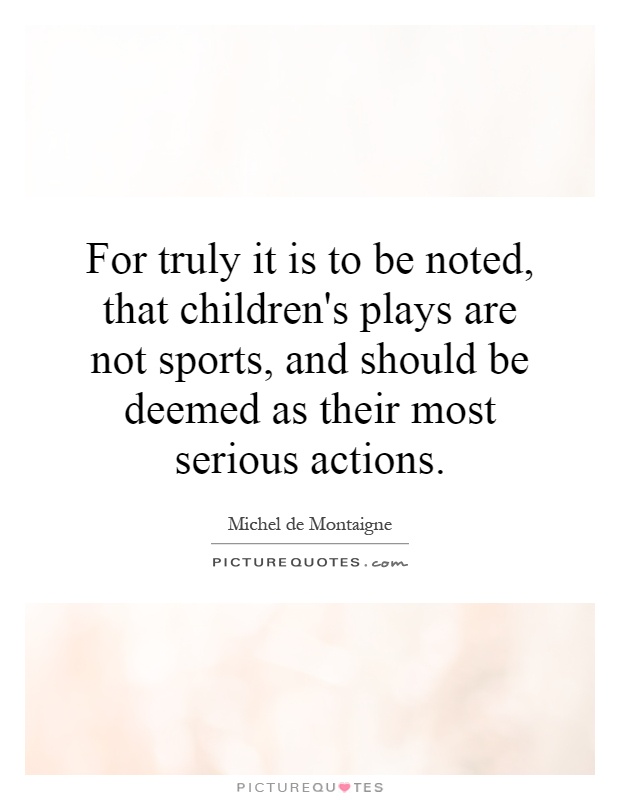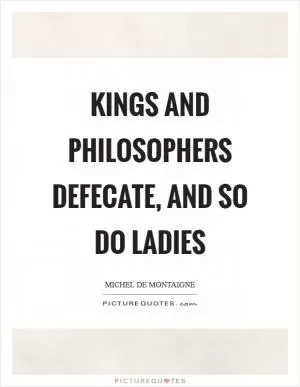For truly it is to be noted, that children's plays are not sports, and should be deemed as their most serious actions

For truly it is to be noted, that children's plays are not sports, and should be deemed as their most serious actions
Michel de Montaigne, a French philosopher and writer of the Renaissance period, believed in the importance of childhood and the significance of children's play. In his essay "Of the Education of Children," Montaigne argues that children's play should not be dismissed as mere frivolity or entertainment, but rather should be seen as a serious and meaningful activity.Montaigne believed that children's play was a crucial part of their development and education. He saw play as a way for children to explore the world around them, learn about themselves and others, and develop important skills such as creativity, imagination, and social interaction. In his view, children's play was not just a way to pass the time or entertain themselves, but a vital aspect of their growth and learning.
Montaigne also believed that children's play was a reflection of their inner thoughts and feelings. He argued that children's play was a window into their minds and souls, revealing their desires, fears, and aspirations. By observing children at play, adults could gain valuable insights into their inner worlds and better understand their needs and desires.
Furthermore, Montaigne believed that children's play should be taken seriously because it was a form of self-expression and self-discovery. He saw play as a way for children to explore their identities, experiment with different roles and personas, and express themselves in a safe and creative environment. By engaging in play, children could learn more about who they were and who they wanted to become.












 Friendship Quotes
Friendship Quotes Love Quotes
Love Quotes Life Quotes
Life Quotes Funny Quotes
Funny Quotes Motivational Quotes
Motivational Quotes Inspirational Quotes
Inspirational Quotes